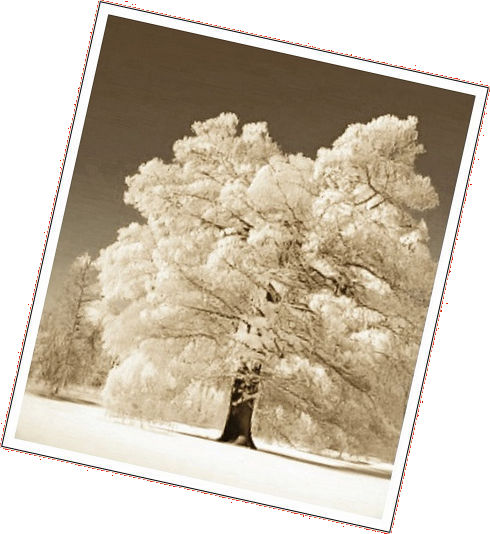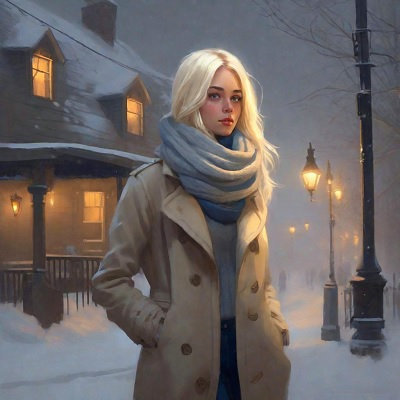PRINT AS PDF
The calendar marched into January. There was no snow in Snowtown.
To the local residents, it seemed that their village had taken its name from a time that was now in danger of being lost forever. In coming years, only the oldest residents would be able to say that they had actually experienced a snowfall. Once they departed, they would take their precious winter memories with them.
Snowtown found itself mired in the grips of a dreadful multi-year snow drought. Even the GFS computer model had abandoned its long-range fantasy snowstorms. Those digital depictions had continually raised hopes. Yet, over and over again, those hopes were dashed on the jagged rocks of reality, as the promised winter storms never materialized. It appeared that the GFS model had finally surrendered to reality.
Everyone in the village had taken notice. At the local college, students taking the Philosophy 101 course used the absence of snow to argue their understanding of eternity. The local shops that still sold a range of winter goods were placed on an “endangered business list” that the local Chamber of Commerce had compiled to bring attention to the village’s plight. Snowtown’s winter charm was disappearing just as the snows had vanished into a receding past.
The only places snow could be found were on aging photographs, digital images, and the paintings that hung in the local art gallery. The gap that divided imagery from real experience was an unbridgeable one.
The two century-old Maple Tree that dated to the village’s establishment still stood. One day, its rings would tell amazing stories to any scientist who examined them. It had weathered droughts, violent thunderstorms, pounding hail, torrents of rain, howling blizzards, and two hurricanes. During summers, the shade from its thick leaves provided a measure of refuge from the wrath of an increasingly vengeful sun that ruled summers that now stretched from late May into October.
The night was mild. Large, heavy raindrops began to fall. Within minutes, rivulets ran along the curbsides. Water ponded in opportunistic spots. The wind freshened. It would be another wild, mild, and wet night.
By midnight, most of the village’s residents had fallen asleep as the soaking rain beat against their windows. A few college students labored into the night: writing, cutting, pasting, and re-writing. The tedious sound of the falling rain added to their exhaustion. Caffeinated drinks had lost their power to stave off sleep.
Ella, a tall platinum blond international student from Paris, tried to push on. Although fluent in English, her thoughts increasingly began to flow in French. The paper required English. Fatigue had broken down her fluency. Now, she had to work to translate her French-language thoughts into English-language text.
“I need another cappuccino,” she thought to herself. She walked quickly into the small kitchen in the 19th century home that had been converted into dorms for the college students. Through muscle memory, she quickly whipped up a giant mug of steaming cappuccino. She placed the ceramic mug, which featured Claude Monet’s “Snow at Argenteuil,” next to her laptop.
She glanced at the screen. She read through the last paragraph she had written. She prepared to write with renewed vigor. And then there was darkness.
Sometime late at night, the unusually intense storm tapped into a distant air mass that was just cold enough to support snow. In almost a flash, the driving rain gave way to wet snow. The swirling snowflakes fell thick and fast, shrouding the quaint village as if it were cloaked in fog. The wet snow plastered everything it encountered. Snowtown’s charming residential streets were quickly covered in a thickening blanket of white.
Ella suddenly awakened. The sound of the furious raindrops that had been lashing her dorm’s windows had fallen silent. Not completely silent. It seemed as if gusts of wind rose time and again to hurl bursts of countless tiny pellets against the glass that separated Ella from the raging elements outside. The wind had taken on a different, less mournful, tone, too.
Ella opened her eyes. The room seemed brighter. Her faithful lamp that illuminated her small desk shone on. Her laptop’s screen saver glowed from the light of the Monet that had supplanted her Word document. But the lighting really was different.
“What time is it…?” she asked herself. Ella realized that despite her frantic last-second effort to arm herself with caffeine to work through the night, she had succumbed to sleep.
The gusts of wind flung the heavily falling snow against the windows. Now awake, Ella sought to resume her writing. She hit “Enter” and the screen saver was gone in an instant. Ella’s document was again on the screen. Twelve-point Times New Roman text had replaced the Impressionist masterpiece. Now she would write.
But she did not start. Her growing curiosity about what was happening outside had become an unstoppable force that drew her away from her laptop to the window. She had to see whatever it was that pulled her away from her assignment.
She opened the Venetian blinds. The old, dreary wet world was gone. A new magical one had come into existence.
Having lived through the brutal heat of Parisian summers marked by intense heatwaves with temperatures of 40°C (104°F or above) and having never seen snow before, she hurriedly put on her overcoat, scarf and boots. Concluding that there would be no class in the coming day, she stepped outside to explore the new world that was before her.
Note: All images were generated using multiple AI platforms. The first image was also processed in Sepia. No text in this short story was generated by AI.





